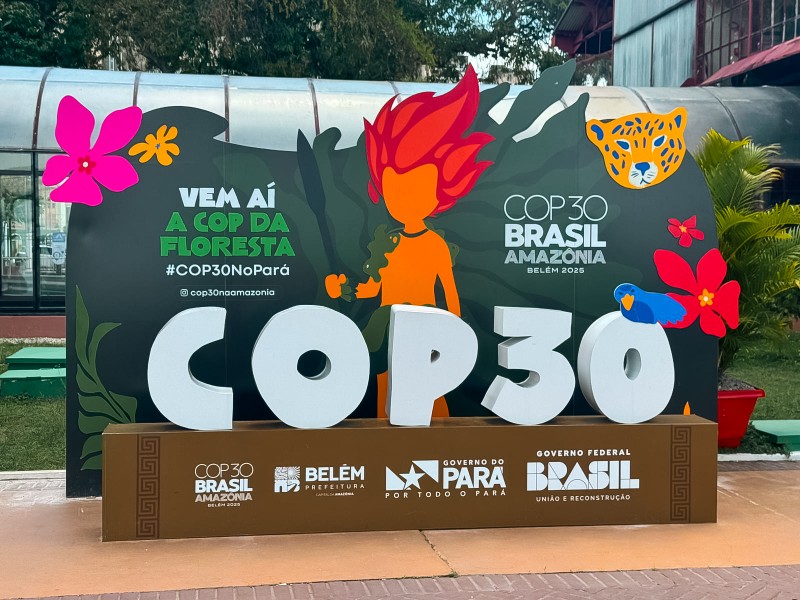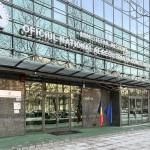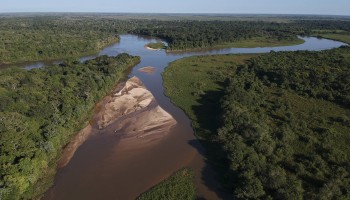Reported by
One of Brazil’s richest citizens, Rubens Menin, is chairing a sustainable cities group that launched this week at the world's biggest climate conference. While he discussed "successful case studies" for urban development with business leaders, his own construction company has faced legal actions for environmental damage in two separate cases.
Legal documents show that Menin’s homebuilding company, MRV, is facing a civil lawsuit for allegedly flooding farmland in a centuries-old community founded by escaped slaves.
A criminal conviction against MRV in a second case — for dumping raw sewage — was overturned this week during COP30, the United Nations climate conference that wraps up today in Belém, in the Brazilian Amazon. A judge ruled that the statute of limitations had run out since the offence happened in 2015, and the state took too long to prosecute.
Menin is chair of the "Sustainable Cities Working Group,” which was launched at this year's COP30 to develop recommendations for government leaders based on “successful case studies” from the private sector.
Menin is its chairman of the board of directors and largest shareholder of MRV, a publicly traded company listed on Brazil’s main stock exchange B3 (Brasil Bolsa Balcão). He is also the founder of Banco Inter, one of Brazil’s leading digital banks, and his other investments run from media to sports, and a winery. Forbes magazine estimates his fortune at $2.2 billion.
MRV did not answer specific questions about the two legal cases. Menin’s press officer said he would respond to questions, but did not reply before publication.
In an emailed statement, MRV said it complies with “all environmental regulations in force, ensuring that each project contributes to urban planning and environmental balance in the regions” where it operates.
The company added that it allocated more than $65 million last year for “urbanization projects focused on infrastructure, sustainability, and quality of life.”
Yet court documents reveal gaps in its sustainability efforts.
In a neighbourhood on the outskirts of Vitória, capital of the southeastern state of Espírito Santo, MRV was convicted in a criminal case of causing pollution at its condominium. According to the complaint by Brazil’s Federal Public Prosecutor's Office, inspections in 2015 found the condominium was discharging sewage "without proper treatment, directly into the soil and the Laranjeiras Stream."
The company was convicted in July and ordered to pay a fine of 10,000 Brazilian reais ($1,877), but that judgement was overturned on November 17. The Prosecutor’s Office agreed with the final judgement, writing: “Considering the time elapsed between the receipt of the complaint and the delivery of the judgment (8 years and 9 months), the facts have become time-barred by the statute of limitations.”
Meanwhile in the northeastern state of Bahia, MRV is facing an ongoing civil lawsuit filed by the Federal Prosecutor’s Office for environmental damage to the Quilombo Quingoma community in the metropolitan region of the capital, Salvador. The lawsuit is based on an inspection report from the state environmental agency, which concluded the company "was responsible for the filling and obstruction" of the Jaguaribe River during the construction of a condominium project.
According to the report, the river level rose 3.5 meters, “flooding the existing crops on the banks.” The environmental agency fined the company 100,000 reais (about $18,000) in 2021, and ordered the waterway to be cleared.
But years later, residents are still feeling the effects of the flooding.
"There were some centuries-old trees, jackfruit trees, and many cassava plants… When this water arrived, we ended up losing everything," Rosemeire Nascimento dos Santos, a resident of Quilombo Quingoma, told OCCRP.
“Quilombos” are settlements founded in the 17th century by escaped slaves, and remain occupied by their descendants and others. These communities have territorial rights recognized by the Brazilian Constitution.
Despite that legal protection, Quilombo Quingoma is under pressure from public authorities, according to Silvio Marcio Montenegro Machado, a geography professor at the Federal Institute of Bahia. The community is "the only preserved green area" in the Salvador municipality of Lauro de Freitas, making it a target for development.
"The city government and the State Government of Bahia began planning public facilities within the community, such as the Metropolitan Hospital,” he said, adding that a new neighborhood was later planned, “which cuts the territory practically in half."
The governments of the city of Lauro de Freitas and the state of Bahia did not respond before publication to an emailed request for comment.






